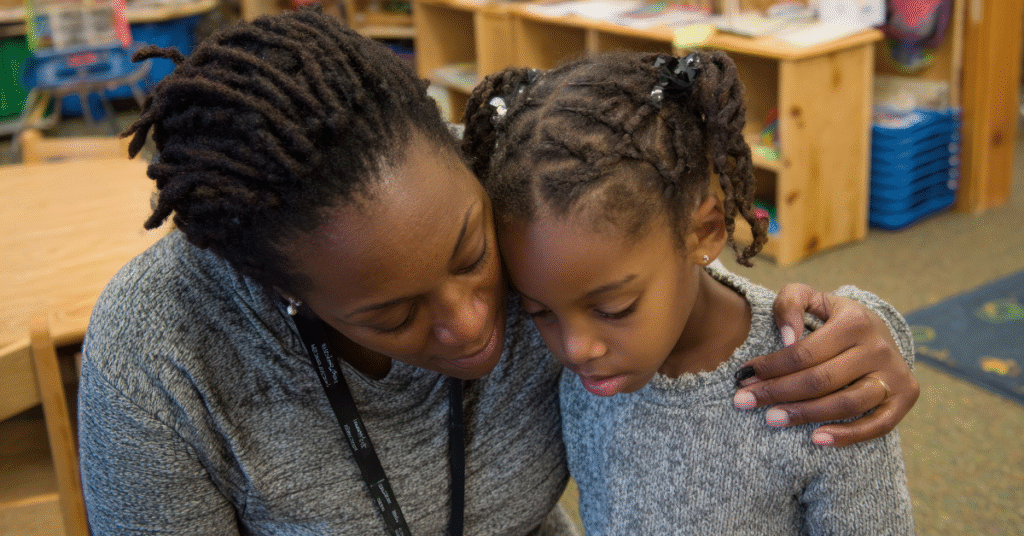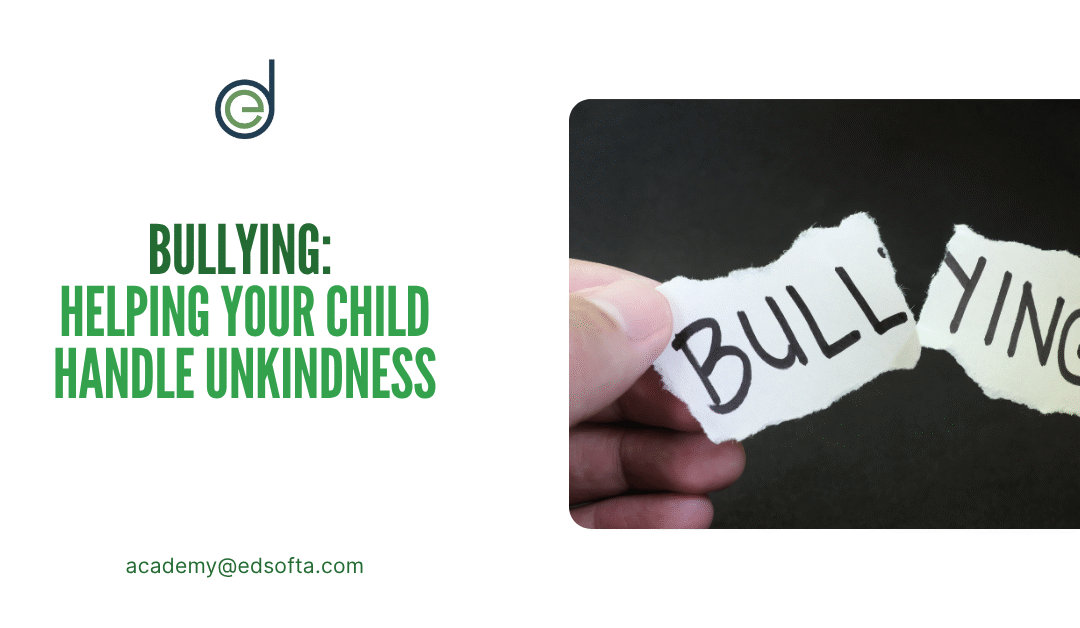The Hidden Impact of Bullying
Bullying is a deeper emotional experience that can leave lasting marks on a child’s confidence and self-worth. Many children between the ages of 7 and 13 begin to navigate social dynamics more independently. At this stage, friendships, group activities, and peer opinions suddenly matter a lot more. Unfortunately, this is also when bullying can appear, sometimes subtly, through exclusion or gossip, and other times more directly, through teasing or physical aggression.
As a parent, you may not always be there to protect your child from every harsh word or action. But you can equip them with the emotional strength, resilience, and confidence they need to face unkindness without losing their sense of self.
So, how do you prepare your child for this? Let’s start with what you can do right at home.
Building Inner Strength at Home

Confidence begins long before your child steps out into the world. It’s nurtured through the daily messages they receive, especially from you. Here’s how you can build a sense of self-worth that helps your child rise above bullying:
- Remind Your Child of Their Worth and Uniqueness
Children who know their strengths are less likely to internalise hurtful comments. Talk about what makes them special: their kindness, creativity, humour, or determination. When they understand that their value doesn’t depend on others’ approval, negative words lose their power. - Celebrate Effort, Not Just Results
Praise them for trying, not just for succeeding. Say, “I’m proud of how hard you worked on that project,” instead of, “You’re so smart.” This teaches them that their worth isn’t tied to perfection; it’s built through perseverance. - Use Positive Affirmations Daily
Encourage your child to use affirmations like “I am brave,” “I am kind,” or “I am strong.” These simple phrases, repeated daily, help reshape how they see themselves, especially when they face peer pressure or mean behaviour. - Ask Reflective Questions
Regularly ask your child, “What’s one thing you like about yourself today?” It might feel small, but this helps them develop self-awareness and internal validation instead of constantly seeking approval from others.
By strengthening their inner voice, you’re giving them a protective shield, one that makes them less vulnerable to the opinions and actions of others.
Teaching Calm and Confidence in Difficult Moments
Even with the best preparation, your child might still face bullying at school or online. What truly matters is how they respond when it happens. When kids know how to react calmly, they regain control of the situation, and that’s empowering.
- Teach Them to Stay Calm
Bullies often feed on reactions. Practice simple breathing exercises or role-play scenarios at home to help your child stay composed when confronted. Remind them: calm is power. - Encourage Assertive Communication
Teach phrases like, “That’s not okay,” or “Please stop, I don’t like that.” These short, clear responses help them stand up for themselves without escalating the conflict. - Reinforce the Importance of Speaking Up
Make sure your child knows it’s always okay to talk to a trusted adult, a teacher, a counsellor, or you when something feels wrong. Speaking up isn’t “snitching”; it’s an act of self-protection and courage.
Every time your child successfully navigates a difficult social situation, celebrate it. A simple, “You handled that so well,” reinforces their ability to stay strong and kind, even under pressure.
Give Your Child the Best Learning Experience!
Register your kid now on EdSofta and watch them thrive in an interactive learning environment!
👉 Click Here to Register Your Kid Now!
Partnering With the School

No parent should face bullying challenges alone. Teachers, school counsellors, and administrators play an important role in ensuring your child’s safety and emotional well-being.
- Keep Communication Open
Reach out to your child’s teacher or school counsellor early, not only when problems arise. Building rapport creates a support network for your child. Teachers who understand your child’s temperament and challenges can step in more effectively if issues come up. - Document Incidents Clearly and Calmly
If bullying does occur, keep a record of what happened, dates, times, locations, and witnesses. Stay factual and avoid emotional language in your communication. This ensures that your concerns are taken seriously and handled appropriately. - Advocate, But Model Respect
Children observe how we handle conflict. When you communicate respectfully with school authorities, you’re showing your child that advocacy doesn’t require aggression; it requires clarity, consistency, and calm.
Ask yourself: Who’s the first school staff member you’d reach out to if your child felt unsafe? Knowing this beforehand ensures quick action and reassurance for both you and your child.
Beyond the Bullying: Teaching Empathy and Perspective
Teach your child to see that sometimes, unkindness comes from insecurity, jealousy, or a lack of empathy in others. This doesn’t excuse bullying, but it helps them detach emotionally and maintain compassion rather than resentment.
You can do this by:
- Discussing movies or stories that show kindness overcoming cruelty.
- Encouraging your child to include others who are often left out.
- Modelling empathy at home through everyday interactions.
When kids see kindness modelled consistently, they resist becoming victims and also avoid becoming bullies themselves.
Give Your Child the Best Learning Experience!
Register your kid now on EdSofta and watch them thrive in an interactive learning environment!
👉 Click Here to Register Your Kid Now!
A Parent’s Final Word: Confidence Is the Best Protection

Bullying will always exist in some form, but how your child responds to it can make all the difference. The key is preparation, not fear. When children have a strong sense of self, supportive parents, and caring schools behind them, they don’t crumble under unkindness but rise above it.
So, tonight, take a moment to look your child in the eyes and remind them of this truth: “No one can take away your confidence unless you hand it over.” That’s the kind of lesson that protects them for life.
Give Your Child the Best Learning Experience!
Register your kid now on EdSofta and watch them thrive in an interactive learning environment!
👉 Click Here to Register Your Kid Now!




